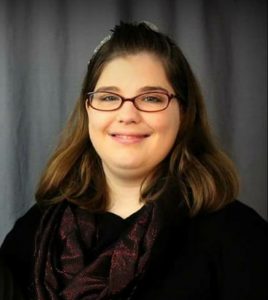Person-first training needed for everyone
April 5, 2018

Language is always changing, so we need to change the way we use it in everyday and professional conversation. Person-first training is a way we can change the way we use language so we don’t accidentally offend someone.
Students looking to learn about person-first language can go to the Dean of Students Accessibility Coordinator Kiersten Bloechl-Karlsen.
Person-first training is changing the way you say things in order to put the person you are talking about before whatever you are using to describe them.
“The basics are to put the person first, literally, their name or the word ‘person,’ whenever possible and avoid defining people by one thing,” Bloechl-Karlsen said. “I would be happy to provide this training to any group on campus.”
Karlsen said if we change to person-first language, it helps people hear someone’s message without attaching a bias to them based on their physical or mental illness.
“The language we use to describe ourselves and others is critical, not just in the professional world, but in the media and on all platforms,” Bloechl-Karlsen said. “We must hear all voices and ensure for those who are not able to share their voice, for whatever reason, that we carry forward the message of their experience.”
Person-first language is not an easy way to communicate, primarily if you are used to speaking using slang. Bloechl-Karlsen said patience is key when someone is learning a new way of speaking, such as person-first language.
“Language shifts are not easy, and so it is important to be patient with the self and others who are working toward it,” Bloechl-Karlsen said. “The best way to do it is to ask the person how they would like to be addressed or communicated about; in training, we break some of that down further, as there are a couple of different schools of thought on the topic.”
Person-first language is a way to keep someone from being defined by their physical or mental illness. UW Oshkosh National Alliance for Mental Illness President Amber Nahley expressed why person-first training is so important to her.
“Person-first training is important to me because I believe responsible and kind word choices can help reduce stigma and bring back the humanity that gets lost in a variety of illness, not just mental illnesses,” Nahley said.
Person-first training means different things to different students. Some believe it helps society speak about each other in better ways, and others believe it reduces biases and stigmas.
“I believe that everyone should have person-first training because it makes them more sensitive to others,” UWO senior Zoe Meyers said. “It also reduces initial biases by saying that something that affects someone is only a small part of them.”
If students cannot be trained in person-first language, they should at least be exposed to its message so they know how to properly discuss someone in the least offensive way.
“In an ideal world, I would love it if every student on campus could be person-first trained, although I would question how feasible that actually is ever to happen,” Nahley said. “By exposing person-first language to as many people as possible, we can slowly but surely cause a societal shift in not only our language but how we see people impacted by illness.”
Nahley said NAMI UWO hopes to offer the training again next year, but has no concrete plans to do so at this time.
Person-first training is a vital skill that students need to have to be able to use language efficiently in the professional world, especially so they don’t accidentally offend someone or put them in a socially constructed box that they do not want to be in.
Social change starts with how we use our language; the more we use it in less offensive ways, the better off we will be as a society.













